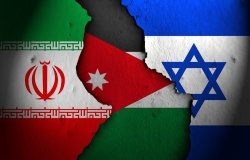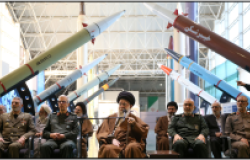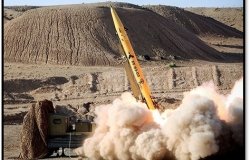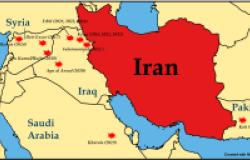Civilian Harm and Amends in Pakistan: Stories of Struggle and Survival
Christopher Rogers, Pakistan Field Fellow, Campaign for Innocent Victims in Conflict (CIVIC); Huma Yusuf, Wilson Center Pakistan Scholar
Overview
Since 2001, armed conflict in northwest Pakistan has killed and injured thousands, displaced millions, and destroyed scores of homes and livelihoods. Pakistan's military operations against extremism, U.S. Predator drone strikes, and unrelenting militant violence have all caused civilian harm. On October 14, the Asia Program hosted the release of a new study, published by the Campaign for Innocent Victims in Conflict (CIVIC), which documents civilian losses in Pakistan.
Christopher Rogers, CIVIC's Pakistan-based field fellow and the researcher and writer of the new report, highlighted some of the study's key findings. One is that there are likely more civilian casualties in Pakistan (counting losses from both Pakistani military operations and U.S. drone strikes) than in neighboring Afghanistan. He reported that in 2009, civilian casualties in Afghanistan from all conflict-related violence totaled about 2,400. Yet that same year, about 2,300 civilians in Pakistan died in terror attacks alone. A second finding is that U.S. drone strikes in Pakistan cause more deaths than the American government admits. While Washington claims that only about 20 civilians have died in all, Rogers said that CIVIC's research uncovered evidence of more than 30 civilian deaths in just nine cases. A third finding emerging from the study is that civilians who survive attacks are in acute need of assistance. Many of these civilians, he noted, suffered from poverty and displacement long before they became casualties of conflict. He concluded with a discussion of the strategic reasons for both Islamabad and Washington to better address civilian losses. A greater focus on civilians, he argued, will help both Pakistan and the United States win hearts and minds. He urged both governments to embrace and implement robust civilian compensation programs in Pakistan.
Huma Yusuf, the Wilson Center's Pakistan Scholar and a columnist with Pakistan's Dawn newspaper, provided some broader context for the debate about civilian casualties—a topic she described as "one of the most neglected" by Pakistan's media. While the idea of assisting civilian casualties is a "no-brainer," she said, it is unlikely that either Pakistan or the United States will actually do so. She acknowledged Rogers' point that Pakistan's government already runs a modest compensation program to assist some civilian victims of terrorism. However, she asserted that Islamabad lacks the money to strengthen such efforts—particularly with the country's response to this summer's catastrophic floods further depleting government coffers. She also contended that it would be unrealistic to expect the U.S. government to compensate people maimed or killed by a drones program that, at least publicly, Washington claims does not exist. Similarly, American offers to compensate civilian victims of covert U.S. military raids into Pakistan from Afghanistan are highly unlikely, as such gestures would "be tantamount to taking responsibility" for the attacks.
Rogers responded to Yusuf's critique, insisting that compensation programs in Pakistan are both justifiable and feasible. The funding required for such measures is relatively modest, he said, and questioned Yusuf's assertion that U.S. taxpayers would resist them. After all, he pointed out, similar U.S. projects have been implemented in Afghanistan and Iraq, and with little apparent protest. Furthermore, assistance to civilian casualties is not just about spending money. It is also a "technocratic" issue. Rogers explained that existing compensation programs can be improved not simply by injecting more funding into them, but also by standardizing procedures for civilians filing claims.
While the perspectives of Rogers and Yusuf often diverged, each agreed on the key role of Pakistan's civil society. To be sure, they said, it is difficult for Pakistan's nongovernmental organizations and media to bring attention to civilian casualties. This is because of the poor access to areas where civilians are harmed the most, and because of what Rogers described as the "pervasive influence" of the army and intelligence services on Pakistani society. Still, they argued that civil society can and should foster healthy debates and raise awareness about an issue that receives relatively little attention in Pakistan.
By Michael Kugelman
Robert M. Hathaway, Director, Asia Program
Hosted By

Indo-Pacific Program
The Indo-Pacific Program promotes policy debate and intellectual discussions on US interests in the Asia-Pacific as well as political, economic, security, and social issues relating to the world’s most populous and economically dynamic region. Read more
Thank you for your interest in this event. Please send any feedback or questions to our Events staff.










